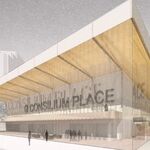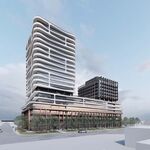So, I just finished reading The Honest Broker by Roger Pielke, which is about science policy and not exactly fantastic reading, but highly illuminating in the context of transportation planning in Toronto. Basically, the premise is that science has been politicized and scientists serve as issue advocates to provide "evidence" for one side of a political debate over another, ad nauseam, taking advantage of the high levels of uncertainty inherent in the question being studied. Since both sides do this, progress in policy-making effectively stalls. The answer, Pielke argues, is for scientists to put all the policy options from both sides of the political process on the table for decision makers to sort out. I would argue that that passes the buck to decision makers, but let's not get too carried away discussing the book and instead look at how depoliticizing policy choices influences a major transportation debate in the GTA, specifically one that can be neatly polarized into two camps: if we want to improve travel, should we spend money on roads or transit? My suggestion is that we do both. If you argue for one over the other, you end up either being Wendell Cox (roads, roads, uber alles) or the David Miller/Adam Giambrone school of transportation planning (let's starve roads and put all our rhetoric into building LRT), and you end up directing your resources and time to fighting a battle rather than buidling transportation infrastructure.
The "Honest Broker" way would be to build roads and transit in equal measures; in other words, not to alienate one camp over the other. If you look at the most successful transportation cities right now: Madrid, Vancouver, Calgary, practically anything in China - you will see that they are feverishly building roads as they are building rail. In Canada, Vancouver is building or widening multiple road bridges over the Fraser and widened the Sea-to-Sky highway while it built the Canada and Millennium lines (and soon the Evergreen). Ditto Madrid, which built extensive freeways around its suburbs while expanding its metro network by an impressive amount. Toronto, during the 1960s, was also a case of this: we built the majority of our extant subway system while we were building our 400-series highways. So, to sum up, back then we didn't have fights like "The War on the Car", because we were building both roads and rail at a fever pitch. There was no way that a councilor like Rob Ford or Denzil Minnan Wong would take Giambrone to task over Jarvis because there was ample evidence that cars were being pandered to as well. When it comes to transportation improvements that involve roads and rail, you either build both or you build none.




